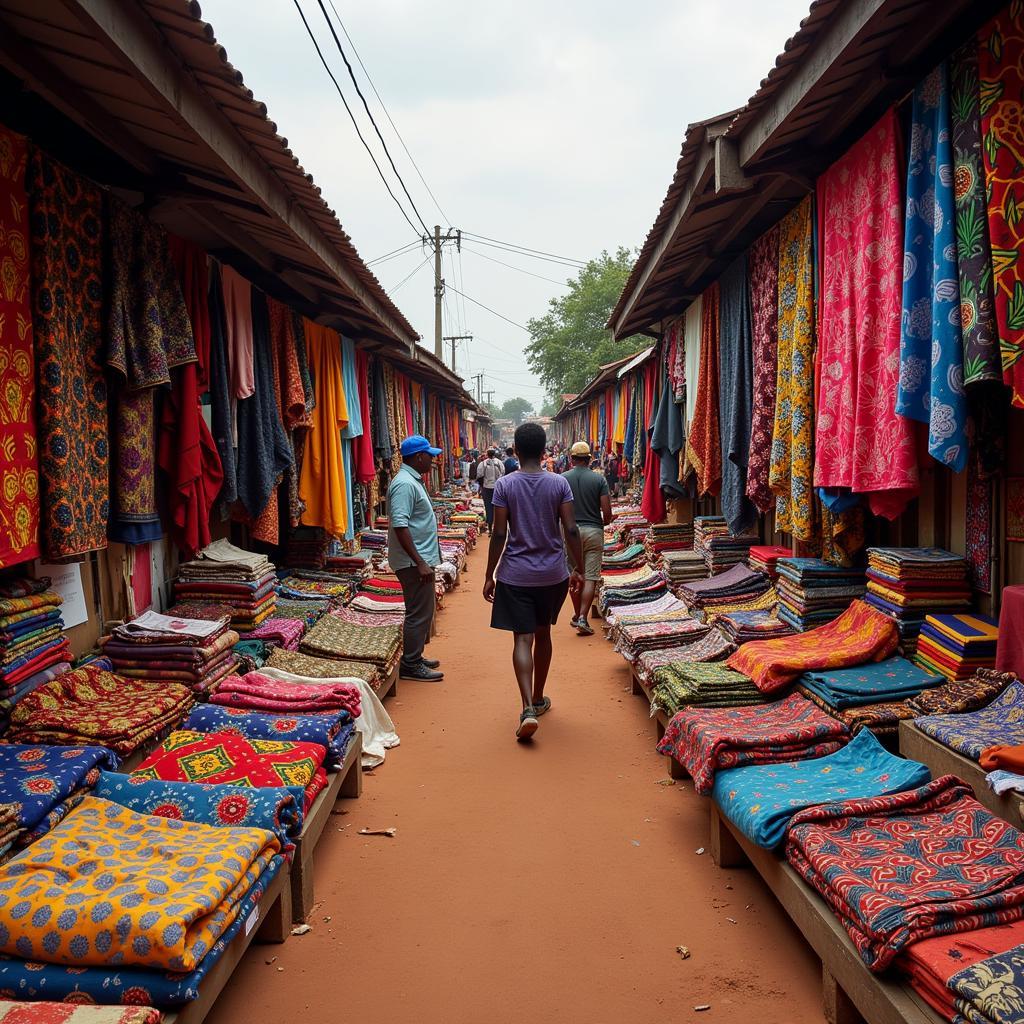The Complex Reality of African Kings Who Sold Slaves
The transatlantic slave trade remains a dark stain on human history. The phrase “African King Who Sold Slaves” often conjures simplified images, but the reality is far more nuanced and complex. This article delves into the historical context, motivations, and consequences of African involvement in the slave trade.
Understanding the Historical Context of African Kings and the Slave Trade
It’s crucial to understand the pre-existing systems of slavery in Africa before the arrival of Europeans. These systems were drastically different from the chattel slavery practiced by Europeans and Americans. Indigenous African slavery was often a consequence of war or debt, and enslaved individuals could sometimes earn their freedom or integrate into their captor’s society. The arrival of European traders dramatically altered these dynamics. The immense demand for labor in the Americas transformed the scale and nature of slavery in Africa, leading to devastating consequences. The influx of European goods, especially firearms, created a dangerous cycle of conflict and enslavement, as some African kingdoms raided neighboring communities for captives to trade.
After this initial section, we can explore more specific examples and the impact on different communities. For more on the topic, you can learn about African American slavery facts.
The Motivations and Pressures on African Kings
Many factors influenced the decisions of African kings who participated in the slave trade. Economic incentives were undoubtedly powerful. European traders offered highly sought-after goods, such as firearms, textiles, and alcohol. These goods could be used to consolidate power, equip armies, and enhance a kingdom’s wealth. However, it’s essential to acknowledge the external pressures. European powers exerted considerable influence, sometimes using military force or political manipulation to coerce African leaders into participating in the slave trade. Additionally, some African kingdoms found themselves caught in a web of existing conflicts and rivalries, where selling captives became a means of survival or maintaining power.
Were all African Kings Involved in the Slave Trade?
Absolutely not. Many African leaders actively resisted the slave trade, understanding its devastating impact on their communities. Some fought against European encroachment, while others sought to establish alternative trade routes based on goods like ivory or gold. The narratives of resistance are often overlooked, but they are a vital part of the historical record.
For more insights into the effects of the slave trade in different areas, read about the African crowd in Goa.
The Devastating Legacy of the Slave Trade
The transatlantic slave trade had a catastrophic impact on Africa, leading to the forced migration of millions of people, the disruption of families and communities, and the destabilization of entire regions. The consequences are still felt today in the form of economic disparities, social inequalities, and political instability. It’s important to remember that the slave trade was not simply an economic transaction; it was a brutal system of exploitation and dehumanization that inflicted immense suffering on generations of Africans.
What were the long-term effects on African societies?
The long-term effects were profound and far-reaching. The loss of human capital hindered economic development, while the constant threat of raids and enslavement created a climate of fear and distrust. The slave trade also contributed to the decline of traditional industries and the rise of new forms of social hierarchy.
Conclusion
The history of “african king who sold slaves” is a complex and multifaceted one. While acknowledging the role of some African leaders in the slave trade, it’s crucial to avoid simplistic generalizations. Understanding the historical context, the varied motivations, and the devastating consequences is essential to grasping the full scope of this tragic period in history. It is important to learn more about the broader African diaspora, including communities like the African community in Gujarat.
FAQ
- Did all African kingdoms participate in the slave trade? No, many actively resisted.
- What motivated some African kings to sell slaves? A combination of economic incentives, political pressures, and existing conflicts.
- What were the long-term consequences of the slave trade in Africa? Economic underdevelopment, social disruption, and political instability.
- What was the nature of slavery in Africa before European arrival? Different from chattel slavery, often related to debt or war, with possibilities for integration or freedom.
- How did the transatlantic slave trade differ from pre-existing forms of slavery in Africa? It was far larger in scale and far more brutal, driven by the insatiable demand for labor in the Americas.
- What were some of the goods traded for enslaved people? Firearms, textiles, alcohol, and other manufactured goods.
- How did the slave trade impact African demographics? Millions were forcibly removed, causing significant population decline and demographic shifts.
You may also find helpful information on African kings sold slaves.
Need more information? Explore these related questions: What role did European powers play in the slave trade? How did the slave trade impact African art and culture? What are the ongoing efforts to address the legacy of the slave trade?
For any support, contact us at Phone: +255768904061, Email: kaka.mag@gmail.com or visit us at Mbarali DC Mawindi, Kangaga, Tanzania. Our customer service team is available 24/7.

